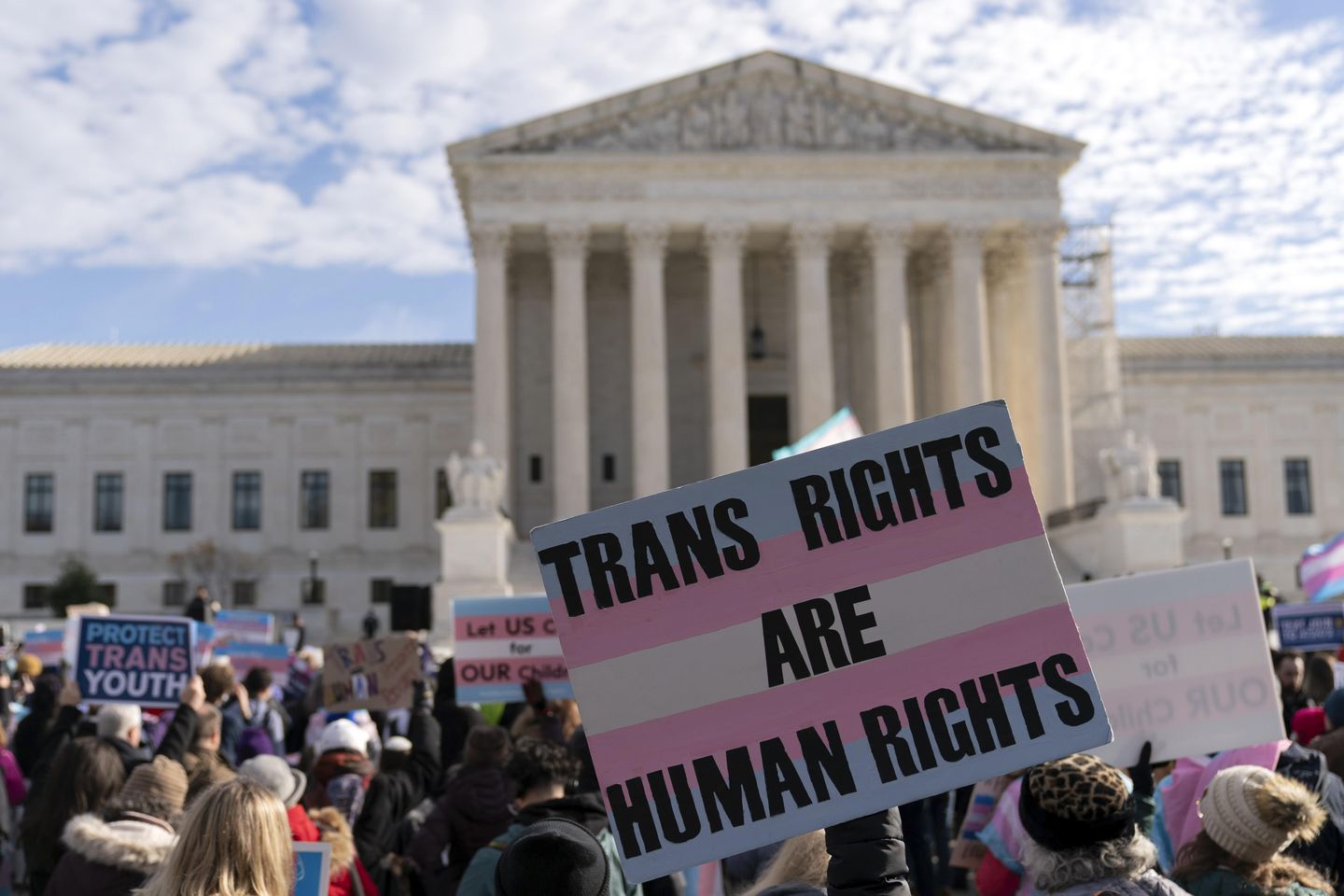President Trump signed an executive order on Tuesday that has sparked controversy and outrage among many. The order aims to restrict gender transition surgeries for individuals under the age of 19, a move that has been met with both support and criticism from various groups.
The executive order, titled “Protecting the Health and Well-Being of America’s Youth,” states that individuals under the age of 19 will no longer be able to undergo gender transition surgeries without parental consent. The order also prohibits federal funds from being used to pay for such surgeries for minors.
In a statement released by the White House, President Trump defended the decision, stating that it is important to protect the health and well-being of America’s youth. He argued that gender transition surgeries can have serious long-term consequences for young individuals, and that it is important for parents to be involved in such decisions.
“We must ensure that our young people are not making irreversible decisions that they may come to regret later in life,” President Trump said in the statement. “It is important for parents to be involved in these decisions and for young people to fully understand the potential risks and consequences of gender transition surgeries.”
The executive order has been met with mixed reactions from various groups and individuals. Supporters of the order argue that it is important to protect young individuals from making hasty decisions that could have long-term consequences. They believe that parental consent is necessary for such surgeries, as parents are in the best position to understand their child’s needs and make informed decisions on their behalf.
Critics of the order, however, argue that it is discriminatory and harmful to transgender individuals. They argue that gender transition surgeries are a crucial aspect of gender identity affirmation for many individuals, and that restricting access to these surgeries could have serious negative impacts on the mental health and well-being of transgender youth.
Many LGBTQ+ advocacy groups have spoken out against the executive order, calling it a violation of transgender rights and an attack on the LGBTQ+ community. They argue that transgender individuals should have the right to make decisions about their own bodies and health care without government interference.
“This executive order is a direct attack on transgender individuals and their right to access necessary medical care,” said Sarah Johnson, a spokesperson for the LGBTQ+ advocacy group Rainbow Coalition. “It is discriminatory and harmful, and it sends a dangerous message that transgender individuals are not deserving of the same rights and protections as everyone else.”
The executive order has also sparked debate among medical professionals and experts in the field of transgender health care. Some argue that gender transition surgeries are a necessary and life-saving treatment for many transgender individuals, and that restricting access to these surgeries could have devastating consequences.
Dr. Emily Chen, a pediatric endocrinologist who specializes in working with transgender youth, expressed concern about the potential impact of the executive order on her patients. “For many transgender youth, gender transition surgeries are a crucial aspect of their overall health and well-being,” Dr. Chen said. “Restricting access to these surgeries could have serious negative impacts on their mental health and could even lead to increased rates of suicide and self-harm.”
Despite the controversy and backlash surrounding the executive order, President Trump has remained steadfast in his decision. He has defended the order as a necessary measure to protect the health and well-being of America’s youth, and has vowed to continue fighting for what he believes is in the best interest of the country.
The executive order is expected to face legal challenges in the coming weeks, as many advocacy groups and individuals are already preparing to challenge its constitutionality in court. It remains to be seen how the order will ultimately be implemented and what impact it will have on transgender individuals and their access to gender transition surgeries.
In the meantime, the debate over transgender rights and access to health care continues to rage on, with both sides of the issue digging in their heels and preparing for a long and contentious battle ahead. It remains to be seen how this debate will ultimately be resolved, and what impact it will have on the lives of transgender individuals in America and beyond.









